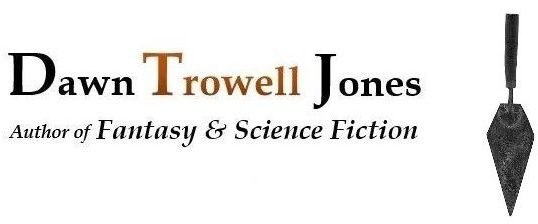 Ever wonder what it can be like when writers are critical of themselves? Here’s a demo.
Ever wonder what it can be like when writers are critical of themselves? Here’s a demo.
–And if you’ve ever had someone respectfully suggest that your poetry may be cryptic, abstruse, and/or incomplete, then maybe you, too, will enjoy the following mock exchange:
We can pick on “Skirts of Gossamer Gold”—which is very short but, to my perhaps oddball way of thinking, vibrates intensely until the drop at the end, something I enjoy about it. Adding a drop accentuates the lift.
But a reader might legitimately say, “What about ‘sinner’? Why does the author say ‘sinner’ in the last line? I don’t like it. It’s as if the author has simply slapped a label on. Nobody was sinning here, just some lunatic of a woman getting on rather intimately with a tree…. Actually, I’m not too sure where air, sea, tree, and woman begin or end…. It’s a jumble, you know? But if I run with it, maybe I do kind of find it exhilarating. Stuff is happening…. Hmmm….”
And the author might reply, “What do you think it means, when an author has done what you say this author has done?”
“Well!” says the reader, “I still say the author has just slapped on that label down there: ‘sinner’—I don’t see sin…. ‘Sin’ is a moral transgression. I don’t exactly understand what all’s happening here, and that makes me uncomfortable. It’s as though I’ve been cut out of the loop, you know. But the character is clearly a mystic participating in some sort of ecstatic orgy with a tree, and then someone, well, me, apparently, or someone else off screen, has spoiled the whole experience. A real buzz-kill has gone and emptied the tree-experience of all its magic. And now the whole rest of the world slaps that label on. But sin only comes into the picture there at the end, I see, right there, after the spoiling. And now it feels as though the author is about to launch me into another experience that’s… that’s, I don’t know, clinical or institutional or something. And she’s left me there. Like, ‘That’s it. This is where we are.’”
“Voilà,” the author says. “She’s transferred an experience to you. How was it?” [wrings hands nervously]
All kidding aside, it’s fair to say that poetry is a story told with vivid imagery and a degree of musicality that cannot be communicated with the same exclusive attention in any other way. Short or long, poetry is all-of-a-piece. Forget worrying about formal structure: Whatever form it takes, it works or it doesn’t.
For me, poetry is the experience of a question without a corresponding answer. Poetry may lurk within prose. Intellect, I find, sometimes gets in the way of enjoying a good poem, particularly that rhapsodic instant (in any emotional key) when ‘oh’ is all I can think to say. Of course, much depends on the poem. And like any good religion, poetry needs at least some coherence. I, for one, prefer a nip of concept to chow on.
Someone once said that a writer is the only artist whose canvas exists only in the mind of the perceiver. [Don’t remember who. Does it matter?]
I cannot agree with that premise. All art lives in the mind of the perceiver by communicating an experience that is beyond words, even when words are the purveyors. The principle remains the same no matter how the art is accomplished.
All art, when it comes down to it, is ephemeral and experiential, more like the immediacy of swaying to music, where the instrument strummed is the experiencer’s mind at the exact moment of perception, never to be perceived the same way twice, and where strings are strummed with colors and lines that are both real and implied. Like the abstraction of a novel’s plot progression? Maybe. It doesn’t matter whether we’re speaking of an easy-breezy dance, slapped-on paint, chipped stone, or the glomeration of words on a page. Art cannot exist as art without communing with an experiencer’s mind. Some might say, his soul.
And if the work lingers in our thoughts long after? Then we’ve not only perceived the beauty of a particular image or sound, we’ve acquired a beauty of mind: The vision is now a part of us. That’s wonderful, isn’t it? I love that. I want that.
